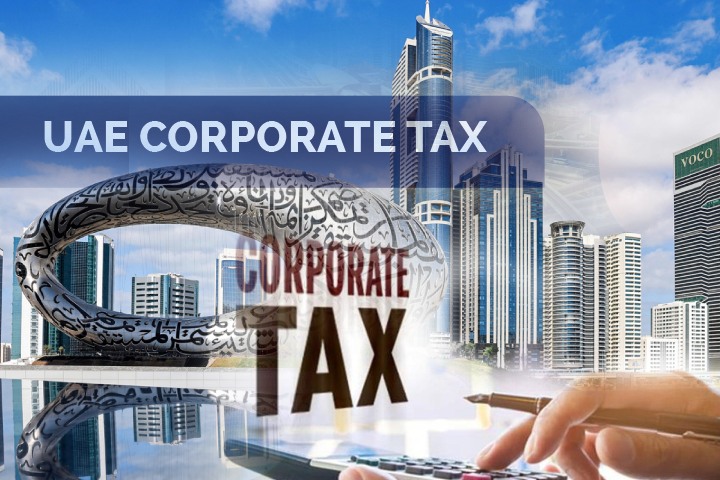The introduction of the UAE corporate tax rate has marked a significant shift in the country’s economic framework. For decades, the United Arab Emirates was considered one of the most tax-friendly jurisdictions in the world, attracting investors, entrepreneurs, and multinational companies. However, with the global move toward standardizing taxation and aligning with international best practices, the UAE introduced corporate tax regulations to strengthen its economy, diversify revenue, and maintain global compliance.
In this blog, we will explore the details of the UAE corporate tax rate, its implications for businesses, and how it connects with related tax policies such as the Abu Dhabi VAT rate, Abu Dhabi corporate tax, and Abu Dhabi corporate tax rate. We will also discuss how AlphabuDhabi can support investors and companies in navigating these changes seamlessly.
What is the UAE Corporate Tax Rate?
The UAE corporate tax rate refers to the percentage of business profits that companies operating in the country are required to pay to the government. Currently, the rate is set at 9% for companies that meet certain profit thresholds, which is still among the most competitive tax rates globally. This move aligns the UAE with the global minimum corporate tax rate initiative while ensuring that the nation remains an attractive destination for foreign direct investment.
Many companies wonder how this compares with the general UAE tax rate and the united arab emirates tax rate system. Unlike many countries, the UAE does not impose personal income tax on individuals, making it still favorable for both expatriates and business owners. Corporate taxation is mainly directed at business profits, leaving personal earnings untouched.
Why Was the UAE Corporate Tax Rate Introduced?
The introduction of the UAE corporate tax rate was driven by multiple factors:
Global Compliance: The Organisation for Economic Co-operation and Development (OECD) has been pushing for transparency and global tax reforms to prevent base erosion and profit shifting. By introducing a corporate tax, the UAE aligns itself with these international standards.
Diversification of Revenue: While oil and gas have historically driven the economy, the government has been diversifying its sources of income. Taxes such as the Abu Dhabi VAT rate and the corporate tax contribute to a more sustainable revenue model.
Economic Stability: Introducing a moderate United Arab Emirates tax rate ensures financial stability, strengthens government services, and maintains investor confidence.
Key Features of the UAE Corporate Tax Rate
- Standard Rate of 9%: The UAE corporate tax rate is set at 9% on business profits above a certain threshold, making it one of the lowest corporate tax rates in the world.
- Zero Tax on Small Businesses: Small and medium enterprises may benefit from exemptions if their taxable income falls below the specified threshold.
- Free Zone Entities: Many free zones in the UAE offer tax benefits, but businesses must comply with substance requirements and maintain accurate documentation.
- Special Sectors: Certain industries, including natural resources, are subject to different tax treatments, such as the Abu Dhabi income tax rate, which applies to oil and gas companies specifically.
- Exemptions: Government entities, charities, and certain investment funds are exempt from corporate tax.
Abu Dhabi Corporate Tax and Related Rates
While the UAE corporate tax rate applies nationwide, Abu Dhabi has its specific tax considerations. For example:
-
The Abu Dhabi corporate tax applies differently to oil, gas, and petrochemical companies. These businesses are subject to higher tax rates due to the significance of the natural resources sector.
-
The Abu Dhabi corporate tax rate for oil companies can range up to 55%, depending on production agreements.
-
Similarly, the Abu Dhabi income tax rate applies specifically to the oil and gas sector and is distinct from the general 9% corporate tax.
-
Alongside corporate taxation, businesses must also account for the Abu Dhabi VAT rate, which stands at 5% on most goods and services.
This highlights that while the general UAE corporate tax rate is business-friendly, industries tied to natural resources operate under stricter taxation systems.
Comparison: UAE Corporate Tax Rate vs. Other Countries
The UAE corporate tax rate of 9% is highly competitive compared to global standards. Many developed countries have corporate tax rates ranging from 20% to 30%, which puts the UAE in a favorable position for investors. Even within the Middle East, the UAE maintains one of the lowest rates, giving it an edge in attracting multinational corporations.
By maintaining a relatively low United Arab Emirates tax rate, the government ensures that the UAE continues to serve as a hub for innovation, trade, and entrepreneurship.
Benefits of the UAE Corporate Tax Rate for Businesses
- Predictability: A fixed, transparent system makes financial planning easier for businesses.
- Global Credibility: Compliance with international standards enhances the UAE’s reputation as a reliable business hub.
- Encouragement of SMEs: Exemptions for smaller businesses encourage entrepreneurship and innovation.
- Balanced Growth: Revenue generated from the UAE corporate tax rate supports infrastructure, healthcare, and education, fostering long-term growth.
Challenges Businesses Face
Despite its advantages, the UAE corporate tax rate introduces some challenges:
-
Compliance Requirements: Businesses must maintain proper financial records and undergo audits.
-
Adjustment Period: Companies new to taxation may struggle with initial adjustments.
-
Sector-Specific Complexities: Oil and gas companies face unique obligations under the Abu Dhabi income tax rate and Abu Dhabi corporate tax rate.
This is where expert guidance from AlphabuDhabi becomes invaluable.
How AlphabuDhabi Helps Businesses
AlphabuDhabi specializes in guiding companies through taxation, licensing, and corporate services. Their team provides:
- Corporate Tax Advisory: Helping businesses understand the UAE corporate tax rate and comply effectively.
- VAT Registration and Compliance: Navigating requirements under the Abu Dhabi VAT rate.
- Customized Business Solutions: Supporting small businesses, investors, and multinational corporations.
- Legal and Administrative Support: Ensuring compliance with all regulations tied to Abu Dhabi corporate tax and the united arab emirates tax rate system.
By partnering with AlphabuDhabi, companies can focus on growth while leaving complex taxation matters in safe hands.
Practical Steps to Prepare for the UAE Corporate Tax Rate
- Assess Taxable Income: Understand which parts of your revenue are taxable.
- Keep Records: Accurate documentation is essential for compliance.
- Register for Corporate Tax: Businesses must complete registration with the relevant authorities.
- Consult Experts: Engage firms like AlphabuDhabi to avoid penalties and maximize efficiency.
- Plan for VAT: Alongside corporate tax, companies must manage obligations related to the Abu Dhabi VAT rate.
Our Services at Alpha Abu Dhabi
At AlphaBudhabi, we are committed to providing a wide range of services that meet the needs of individuals, entrepreneurs, startups, and large companies. Our most prominent services include:
Company Formation
- Establishing companies within Abu Dhabi and in free zones
- Preparing contracts and commercial licenses
- Providing legal and administrative consultations
Issuing visas and residency permits
- Residence visas for investors, families, and employees
- Issuing and renewing work permits
- Procedures for tourist visas and long-term residency permits
Labor Office Services
- Settling Labor Office Violations
- Updating employment contracts and amending labor status
- Issuing new work permits and renewing existing ones
Immigration and Passport Services
- Assistance in submitting citizenship or golden residency applications
- Immigration and investment consultations in the UAE and abroad
- Issuing and renewing passports for some nationalities
Conclusion
The UAE corporate tax rate represents a new era in the country’s economic strategy. While businesses will need to adapt to new compliance standards, the tax rate remains one of the lowest globally, ensuring that the UAE remains a leading destination for investors and entrepreneurs. With proper planning and guidance, companies can navigate this system smoothly.
AlphabuDhabi stands ready to assist businesses in understanding the Abu Dhabi VAT rate, Abu Dhabi corporate tax, Abu Dhabi income tax rate, and the broader united arab emirates tax rate system. Whether you are a startup or a multinational company, expert guidance ensures compliance while supporting long-term growth.
Communication Methods
- Email: info@alphabudhabi.com
- Website: www.alphabudhabi.com
- Phone: +971561691648
FAQs
The UAE corporate tax rate is set at 9% for business profits above the specified threshold.
No, individuals are not subject to personal income tax in the UAE.
Abu Dhabi applies specific corporate tax rates to oil and gas companies, which can be significantly higher than the standard 9%.
The Abu Dhabi VAT rate is 5% on most goods and services.
Yes, AlphabuDhabi provides full advisory services covering VAT, corporate tax, and all related compliance requirements. What is the current UAE corporate tax rate?
Does the UAE impose income tax on individuals?
How does the Abu Dhabi corporate tax rate differ from the general UAE rate?
What is the Abu Dhabi VAT rate?
Can AlphabuDhabi help with both VAT and corporate tax compliance?





لا يوجد تعليق